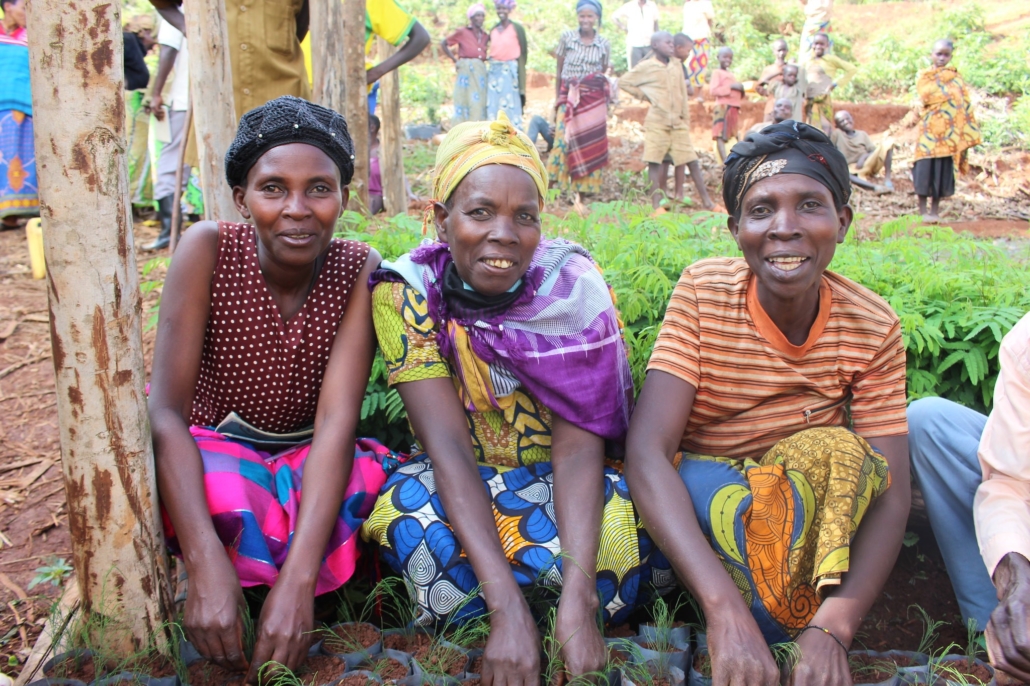Send a Cow and Women with Disabilities in Uganda

Four out of every 25 people in Uganda have a disability, meaning that roughly seven million people are suffering from a disability. Women with disabilities in Uganda face lives of abuse, fear and longterm poverty, such as employers excluding them from employment opportunities, communities harassing them and the state neglecting them. Send a Cow’s program, Agriculture for Women with Disabilities Activity (AWDA), is giving women with disabilities in Uganda the resources they need to build hopeful futures.
A History of Disability in Uganda
The World Health Organization (WHO) estimates that 15 percent of the global population are persons with disabilities (PWD), with that number rising drastically for people living in poverty and for post-conflict countries. Since the late 1980s, Uganda has endured multiple civil wars and violent conflicts, primarily against the Lord’s Resistance Army in the north. Not surprisingly, the incidence rate of disabilities is highest in Northern Uganda, with the region reporting over 16 percent of its population suffering from disabilities compared to only 12.5 percent in other regions. This history of conflict coupled with poverty has left a population suffering from loss and limited use of limbs, hearing difficulties and malnutrition-related disabilities like stunting and learning difficulties.
Trapped in Poverty
With very little access to education, suitable housing or employment, roughly 80 percent of disabled people in Uganda live in conditions of longterm poverty. The situation is even worse for women with disabilities in Uganda. As one of the most disadvantaged and marginalized groups in the country, disabled women in Uganda not only struggle to survive financially but their communities often ostracize them, their families do not always support them and they often endure frequent abuse and discrimination from strangers and neighbors.
One woman with a disability from Northern Uganda shared with Human Rights Watch that her community told her, “You are useless. You are a waste of food. You should just die so that others can eat the food.”
This type of discrimination coupled with gender inequality keeps women with disabilities in Uganda from understanding their basic rights, gaining the skills and education necessary to get jobs and from accessing resources like land for agricultural production.
The Importance of Agriculture
The number of people living in poverty in Uganda has dropped substantially over the last fifteen years, with only 21.4 percent in poverty in 2016 compared to over 31 percent in 2005. The World Bank reports agriculture is to thank for this progress, with 79 percent of national poverty reduction occurring in households working in agriculture.
Knowing the critical role agriculture plays in lifting people out of poverty in Uganda, Send a Cow, a U.K.-based organization that works throughout Africa to end rural poverty by helping people grow their own futures “on their own land, on their own terms,” launched the Agriculture for Women with Disabilities Activities project (AWDA) in Uganda in 2016. With roughly 80 percent of women with disabilities in Uganda unemployed and the majority suffering from discrimination and abuse, Send a Cow designed its program to not only give women with disabilities the skills and resources they need to access land and grow food but also teach them about their rights and give them the training and confidence they need to occupy places in their communities.
“One of the major benefits of AWDA is being trained in our rights as people with disabilities. We are confident and know that we are people and can achieve whatever we set ourselves to,” shares Alice, a 47-year-old partially blinded woman from Luuka District, Uganda.
AWDA’s Impact
“We were people nobody bothered about. Now we are very happy! As people with disabilities, others thought we couldn’t dig, but Send a Cow believed in us and gave us knowledge. I can crawl and dig!” ~ Joy Nabirye (45)
Before Send a Cow’s AWDA program, Joy Nabirye, who cannot use her legs, let the community’s views of women with disabilities dictate her life. Now, thanks to AWDA, she knows the unique capabilities she possesses as a woman with disabilities and is able to work her own land, providing for herself and her family. Joy also uses the AWDA training to teach other women and farmers in Uganda about agriculture and disabilities.
“I am chair of the sub county – an instructor on disability issues and I spoke at council level with officials. This community needs more enlightenment on disability – other farmers need to know about the issues,” she shares.
Send a Cow projects that AWDA will help 1,500 women and girls with disabilities. This will happen by women gaining access to land and increasing their income, while also creating a much larger impact through the formation of community groups and teaching rural communities about gender, land and human rights.
– Sarah Musick
Photo: Flickr
